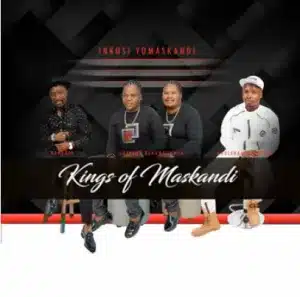Editorial
Maskandi Music in 2022: Preserving Zulu Cultural heritage on the Global Stage

Maskandi 2022
Maskandi songs are a genre of traditional Zulu music that originated in the rural areas of South Africa. The term “maskandi” translates to “a person who carries a guitar on the back” and reflects the signature instrument used in this music style. Maskandi songs are characterized by their distinct guitar-driven melodies, powerful vocal performances, and rhythmic beats.
The lyrics of maskandi songs often revolve around storytelling, conveying historical events, societal issues, cultural traditions, and personal experiences. The songs frequently touch on themes such as love, politics, hardships, and pride in Zulu heritage. Maskandi artists are known for their poetic and metaphorical use of language, which adds depth to the narratives.
In traditional performances, maskandi singers wear distinctive clothing, including headbands, beaded necklaces, and loincloths, reflecting their Zulu identity and culture. The music has evolved over time, incorporating modern instruments and production techniques while preserving its cultural essence.
Maskandi songs are not only a form of entertainment but also serve as a means of preserving and promoting Zulu traditions, language, and history. The genre continues to be popular in South Africa and has gained international recognition, allowing the world to appreciate the rich cultural heritage of the Zulu people.
In the captivating realm of South African music, Maskandi stands tall as a genre deeply rooted in Zulu culture, enthralling audiences with its fusion of traditional elements and modern influences. The year 2022 proved to be a momentous period for Maskandi music, with a plethora of powerful songs, mesmerizing mixes, and groundbreaking collaborations that left an indelible mark on the hearts of its enthusiasts worldwide. From heartfelt ballads expressing the trials of life to foot-tapping tunes celebrating gratitude and love, the Maskandi genre showcased its versatility and artistry in every note.
Waphafa gogo Song by Igcokama Elisha
The song seems to tell a story of a grandmother who feels hopeless and abandoned, as those around her are going down a path she cannot follow. The lyrics also suggest that the narrator will leave to go home, but someone else insists that they will stay. There are references to memories and love, and a sense of waiting for someone.
The chorus repeats the phrase “Shona malanga shona,” which could be interpreted as a call for someone to sleep or rest. The song also mentions getting into a van or wagon to go home, indicating a journey or transition.
Overall, the song appears to touch on themes of longing, departure, and love, with a mix of emotions and reflections on life. However, without more context or information about the artist’s intentions, interpretations may vary.
Sukuma mkami bakubone Song by Mzukulu
The song appears to be a heartfelt expression of love and gratitude towards someone significant, likely a wife or a mother figure. The lyrics convey a deep appreciation for the person, highlighting their uniqueness and the narrator’s commitment to their relationship.
The repeated lines “Ngicela usukume mkami bakbone ngikhethe kahle” emphasize the desire for the person to stand up, possibly showcasing them to others as a well-chosen and beloved partner.
The verses express gratitude for the person’s patience and support during challenging times, even when the narrator had no financial means. The phrase “Ngyakuthanda” repeated multiple times throughout the song means “I love you” in Zulu, further affirming the depth of affection.
Overall, the song appears to be a beautiful ode to love, respect, and gratitude towards someone cherished and valued in the narrator’s life.
Uvuleni La Okhona Song by Inkos’yamagcokam
This song appears to be a powerful expression of pain, betrayal, and mistrust in a romantic relationship. The narrator seeks help and understanding from their neighbor, expressing that their husband is hurting them emotionally and accusing them of infidelity, despite never being married to him.
The lyrics depict a situation where the husband believes the narrator is cheating, but the narrator vehemently denies it, stating that they have never been in a romantic relationship with him. The repeated plea for help from the neighbor indicates a desperate desire for support and intervention in the difficult situation.
The latter part of the song seems to address the issue of trust, with the narrator urging their partner to trust them and expressing that they have been together for many years. However, the partner still refuses to believe and accuses the narrator of dating someone else.
Overall, the song portrays a story of heartbreak, mistrust, and the pain caused by a broken relationship. It touches on themes of trust, betrayal, and the complexities of love and relationships.
Uyanginyathela Song by Inkos’yamagcokama
This song portrays a situation where the narrator feels oppressed and hurt by someone, possibly a romantic partner. The lyrics describe being stepped on and crushed emotionally, emphasizing the pain caused by this person’s actions.
The repeated plea for help from a friend or neighbor suggests a desire for support and understanding in dealing with the difficult situation. The lyrics also mention using a spray instead of water to address the situation, symbolizing the need for a more powerful solution to the emotional pain caused by this person.
Overall, the song seems to address themes of emotional abuse, mistrust, and the need for help and intervention to escape a toxic relationship. The use of metaphoric language adds depth to the emotional turmoil experienced by the narrator.
As the harmonious legacy of maskandi music continues, its profound storytelling, soul-stirring melodies, and cross-cultural collaborations will undoubtedly endure as a symbol of unity and appreciation for the universal language of music. Maskandi’s roots remain firmly planted in tradition, while its branches reach out to embrace the contemporary, leaving an indelible mark on the global music landscape.










































